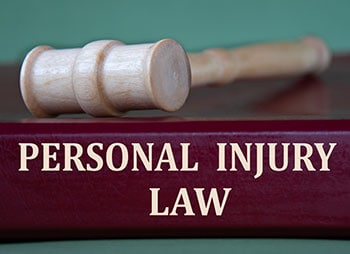
Whether you’ve been in a car accident, experienced medical negligence, or suffered another type of injury, navigating the legal process can feel overwhelming. You might be unsure how your case will be valued, what the legal steps will look like, or how settlements and court proceedings will unfold.
No matter what your situation looks like, it’s important for you to fully understand the personal injury claims process – especially if this is your first time dealing with the legal system. In this article, we’ll discuss key concepts like…
- The meaning of “negligence” and how this applies to your personal injury claim.
- The differences between a trial and a settlement.
- The types of damages you may be entitled to.
What Is “Liability,” And What Does It Mean In The Context Of Personal Injury Law?
Liability means the legal responsibility for an act that causes harm to another person. Every person in society has a responsibility to act as a reasonable person would, with care and consideration. If someone neglects that duty and causes injury as a result, they are liable for any damage that results.
The injured party may then seek compensation from the liable party in the form of a personal injury claim.
How Is “Negligence” Defined, And Why Is It Important?
A person who is negligent is someone who has failed to act with reason and care. For example, if someone is driving a car, negligent behavior would include a failure to obey the speed limit, a failure to stop at stop signs, or texting while driving.
Proving the other party’s negligence and liability is key to winning a personal injury case. Your attorney will review the details of your accident and help you gather evidence to demonstrate that the other party was negligent, liable for your injuries, and owes you damages as a result.
What Are “Damages,” And What Types Can Typically Be Claimed In A Personal Injury Case?
Damages are the compensation you seek for the losses suffered due to another’s negligent actions. In Illinois, these damages can include both economic and non-economic damages.
Economic damages include expenses related to medical bills, the cost of physical therapy, repair expenses to your vehicle, and lost wages due to missing work.
Non-economic damages seek to compensate you for pain and suffering, loss of a normal life, and emotional and psychological damage caused by the accident and its aftermath, such as depression or accident-related PTSD.
What Is The Difference Between A “Trial” And A “Settlement”?
A settlement involves you, the other party, and your respective attorneys coming to an agreement on how much money you are owed for damages. In most cases, cases are settled out of court with the help of attorneys and expert testimony.
If the other party offers a reasonable amount, you may agree to take that amount, and the case will not proceed to trial.
If there are serious disagreements as to how much you are owed, you and your attorney may choose to go to trial. At trial, your lawyer will present evidence of your injuries and the other party’s liability. A jury will then decide if the other party is liable for your injuries and how much money, if any, the other party owes you.
What Does “Burden Of Proof” Mean For My Personal Injury Case?
The burden of proof refers to the responsibility that you and your attorney have to prove to a jury that the other party was negligent and, therefore, is liable for your injuries.
It must be proved that the defendant…
- Had a responsibility of care
- That they breached that responsibility (e.g., were negligent)
- That their negligence caused an accident, and
- That this accident caused your injury and losses.
Next, you must prove how much that injury is worth in terms of economic and non-economic damages. Evidence used to prove your case and determine damages can include dash cam footage, medical records, witness testimony, and documents from your employer citing lost wages.
Unlike criminal cases, the burden of proof for civil cases is relatively low; it will need to be demonstrated that the other party is more likely than not (or at least 51% likely) to be responsible for your injuries, something called a preponderance of evidence.
What Are “Statutes Of Limitations,” And How Do They Affect My Claim In Illinois?
The “statute of limitations” is the amount of time that you have to file a lawsuit after your accident. In Illinois, the statute of limitations is two years from the date of your accident.
There are exceptions to this rule, and it is incredibly important to speak with a lawyer as soon as possible following your accident. If you delay, your window of opportunity to file a lawsuit may close, leaving you without an opportunity to seek damages.
Call an attorney as soon as possible. An attorney can help you begin to gather evidence, notify the other party and their insurance company, and start the process of meaningful negotiations toward a settlement or an eventual lawsuit.
How We Support Clients Like You
We believe that clear communication is essential to easing the stress that comes after an accident and make it a priority to ensure you’re informed every step of the way.
When you have questions, you’ll have direct access to an attorney who will take the time to explain what’s happening in your case in a way that makes sense to you—from how we’ll build your claim to what you can expect as your case progresses.
One of the biggest complaints people have when working with other firms is that they can’t reach their lawyer or get updates about their case. We take a different approach.
At our firm, you’ll never be left wondering what’s going on – you’ll always have someone to answer your questions and keep you informed. This not only helps you stay on top of your case but also gives you peace of mind, knowing you have a team that’s truly here for you.
Still Have Questions? Ready To Get Started? For more information on Personal Injury Claims In Illinois, a free initial consultation is your next best step. Get the information and legal answers you are seeking by calling (312) 586-2820 today.
